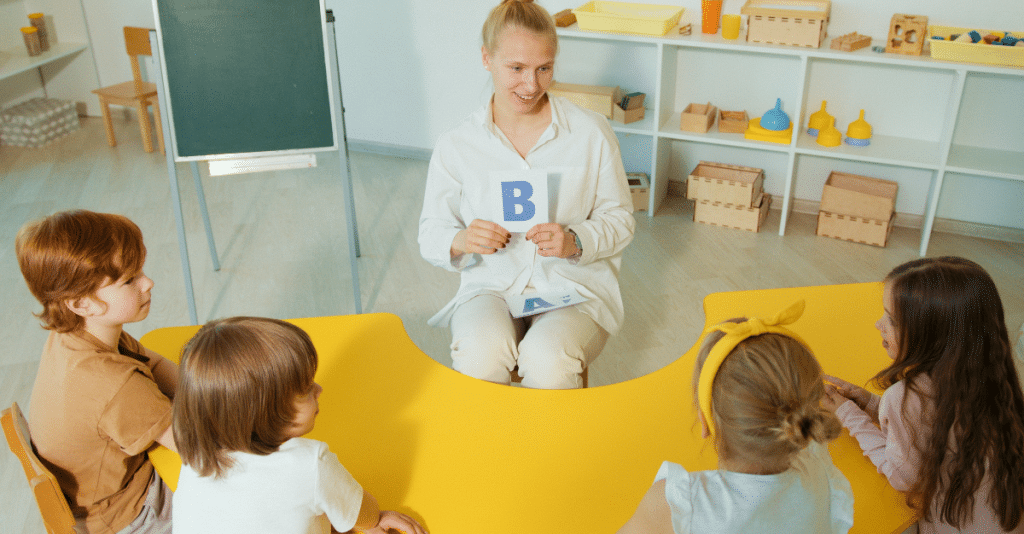The Importance of Bilingual Education
The Importance of Bilingual Education

In the constantly changing world of early childhood education, it has become increasingly clear that bilingual education is of utmost importance. With children’s incredible ability to absorb information, preschool children can benefit tremendously from being exposed to multiple languages. Bilingual education not only helps children learn multiple languages but also helps develop skills essential for a child’s future success.
1. Cognitive Advantages

Bilingual education provides preschoolers a cognitive workout, sharpening their brains and enhancing their problem-solving skills. Research indicates bilingual children often develop better executive functions, such as working memory, cognitive flexibility, and attentional control. These cognitive advantages set the stage for academic success as they progress through their educational journey.
2. Linguistic Proficiency
One of the most apparent benefits of bilingual education is the development of linguistic proficiency in two languages. Preschoolers immersed in a bilingual environment can become fluent speakers, readers, and writers in both languages. This linguistic flexibility not only opens doors to diverse communication but also strengthens their overall language skills.
3. Enhanced Communication Skills
Bilingual education fosters enhanced communication skills in preschoolers. Exposure to multiple languages encourages children to become effective communicators, adapting their language use based on their audience and context. This adaptability is a valuable skill that extends beyond language and contributes to successful social interactions.
4. Cultural Awareness
Bilingual education and cultural exposure go hand in hand. When preschoolers learn multiple languages, they are often introduced to the rich tapestry of diverse cultures associated with those languages. This early exposure lays the foundation for cultural awareness, fostering an appreciation for diversity and global perspectives.
5. Greater Flexibility and Adaptability
Bilingual education instils a sense of flexibility and adaptability in preschoolers. Learning to navigate between two languages equips children with a cognitive flexibility that extends to various aspects of their lives. This adaptability becomes a crucial life skill, aiding them in adjusting to new environments, situations, and challenges.
6. Improved Problem-Solving Abilities
The cognitive demands of managing two languages improve bilingual preschoolers’ problem-solving abilities. These children often display a heightened ability to think critically, solve puzzles, and navigate complex tasks. Bilingual education acts as a cognitive workout, enhancing their problem-solving prowess.
7. Early Literacy Skills
Bilingual education has a positive impact on early literacy skills. Preschoolers exposed to multiple languages often demonstrate advanced reading readiness, phonemic awareness, and a broader vocabulary. These early literacy skills lay a solid foundation for future academic achievements.
8. Heightened Creativity
Research suggests that bilingualism is associated with heightened creativity in children. The ability to think and express oneself in multiple languages enhances divergent thinking, allowing preschoolers to approach challenges and creative tasks with increased flexibility and imagination.
9. Strengthened Executive Functions
Bilingual education contributes to the strengthening of executive functions in preschoolers. These cognitive processes, including impulse control, attentional focus, and task-switching, are honed through the constant juggling of two languages. Enhanced executive functions set the stage for improved self-regulation and academic success.
10. Competitive Advantage in a Globalized World
Being bilingual can provide a competitive edge in today’s interconnected and globalized world. Preschoolers proficient in multiple languages are better positioned to navigate diverse cultural and linguistic landscapes, which can enhance their future educational and workforce opportunities.
CONCLUSION

It cannot be overstated how important bilingual education is in preschool. It goes beyond just language acquisition and is a powerful catalyst for developing necessary skills that contribute to a child’s overall cognitive, linguistic, and social-emotional growth. As we recognize the richness and benefits of bilingualism, we pave the way for a generation of preschoolers fluent in multiple languages and equipped with essential skills to thrive in an ever-evolving world.
Mulberry School Tour
Our Locations
Click here to visit our Contact Us page and view the preschool/infant care centres conveniently located near you.
CONNECT WITH US
USEFUL LINKS
About Us
Mulberry Learning prides itself on making the preschool experience both memorable and enjoyable while transforming a child into a competent explorer, an imaginative thinker, and a creative problem solver. Through our proprietary award-winning curriculum, unique Habits of Mind programme and dedicated staff who are passionate about imparting positive attitudes, Mulberry Learning holds strong in its promise to deliver a holistic education that nurtures the Future Ready Child.
A PREMIUM PRESCHOOL BRAND UNDER GLOBAL EDUHUB


